Monstera Thai Constellation
From: £35.00
New!
Choose your delivery date at checkout
*orders with houseplants will be sent on the next available shipping date.
Monstera Thai Constellation – Rare Variegated Houseplant
Elevate your indoor jungle with the stunning Monstera Thai Constellation, a rare and highly sought-after variety prized for its creamy, marbled variegation across broad, fenestrated leaves. This show-stopping plant brings tropical beauty and a luxurious feel to any bright indoor space.
If you want to speed up the growth process and get larger leaves with more fenestration don’t forget to get one of our handmade moss poles.
This plant is:
✔️ Easy to Care For
✔️ Fast Growing
✔️ Air-Purifying
✔️ Ideal for Bright Indoor Spaces
✔️ Perfect for Collectors
✔️ Great for Gifting
The Monstera Thai Constellation thrives with bright, indirect light and a consistent care routine. Over time, it produces larger, highly split leaves that showcase its striking variegation. If you want to speed up the growth process and get larger leaves with more fenestration don’t forget to get one of our handmade moss poles – perfect for encouraging natural vertical growth and healthy development.
✨ Each plant is individually hand-selected from current stock. Size, variegation pattern, and leaf structure will vary naturally – every Thai Constellation is a unique work of art.
🪴 Plants are carefully shipped in nursery pots using recyclable and reused packaging materials, and each one includes a scannable QR code for full care guidance.
🪴 Quick Care Guide
☀️ Light: Bright, indirect light – avoid direct midday sun
💧 Watering: Water when the top 50–75% of soil dries out
💦 Humidity: Moderate to high humidity preferred for best variegation
💡 Extra Tip: Plant in our Highland Moss premium potting mix and provide a moss pole for best growth and fenestration
⚠️ Important:
Please note that the Monstera Thai Constellation is not pet-friendly and should be kept out of reach of pets.
Pictures represent our actual stock, due to the fragile nature of plants there may be some cosmetic damages on leaves which don’t impact the health of the plant.
- How should I care for my Monstera Thai Constellation to ensure the best growth?
- Place your plant in bright, indirect light, and water it when the top 50–75% of the soil has dried out. For optimal variegation and growth, maintain moderate to high humidity and use a moss pole to support its climbing nature.
- Is the Monstera Thai Constellation suitable for homes with pets?
- No, this plant is not pet-friendly. It should be kept out of reach of pets to avoid any accidental ingestion, which can be harmful.
- What makes the Monstera Thai Constellation a special addition to my plant collection?
- Each Monstera Thai Constellation is unique, featuring stunning creamy, marbled variegation and broad, fenestrated leaves. It not only purifies the air but also adds a luxurious, tropical feel to any indoor space, making it perfect for collectors and as a gift.
Monstera Thai Constellation Care Guide
☀️ Light
Scale: ☀️☀️☀️ (High)
Monstera Thai Constellation thrives in bright, indirect light. Ideally, place it where it will receive plenty of light without being exposed to harsh direct sunlight, which can scorch its stunning leaves.
💧 Water
Scale: 💧💧▫️ (Medium)
Water your Monstera when the top 50–75% of the soil feels dry to the touch. Ensure the pot has good drainage to prevent waterlogging, which can lead to root rot.
🌡️️ Temperature
Scale: 🌡️️🌡️️🌡️️ (Warm)
This tropical plant prefers warmer temperatures, ideally between 18°C to 27°C. Avoid placing it in draughty areas or near cold windows during the winter months.
💦 Humidity
Scale: 💦💦💦 (High)
Monstera Thai Constellation loves a humid environment. Consider using a humidifier or placing a water tray nearby to maintain optimal humidity levels for lush growth and vibrant variegation.
💦 Repotting
Repot your Monstera every 2-3 years or when it outgrows its pot. Use a high-quality, well-draining potting mix, ideally our Highland Moss premium potting mix, to support healthy growth and root development.
🐾 Pet Friendliness
Please note that Monstera Thai Constellation is not pet-friendly. Keep it out of reach of curious pets to avoid any accidental ingestion, which can be harmful.
🪴 Recommended locations at home
Place your Monstera in a bright living room, office, or any space with filtered light. It makes a stunning focal point near a window with sheer curtains to diffuse direct sunlight.
☀️ Air Purifying
This plant is known for its air-purifying qualities, helping to remove toxins from the air and improve indoor air quality.
✨ Other Plant Features
Each Monstera Thai Constellation is unique, with its own pattern of creamy, marbled variegation. It’s not only a beautiful addition to your space but also a perfect conversation starter and a collector’s delight.
Got more questions? Ask our Mossbot for additional help, or contact us via our website. Remember, we offer a free plant hospital service if your Monstera needs extra care!
The Ultimate Care Guide for Monstera Plants: Iconic and Easy to Grow
Introduction and History Monstera plants, often called Swiss cheese plants due to their iconic fenestrated leaves, are native to the tropical rainforests of Central and South America. Monstera deliciosa was formally described in 1849 by Danish botanist Frederik Michael Liebmann during his exploration of Mexico. Monstera adansonii, another popular variety, was described in 1830 by Austrian botanist Heinrich Wilhelm Schott. Monstera obliqua and Monstera Peru are other notable species, though information about their first discovery is less detailed in botanical records.
In addition to naturally occurring species, certain cultivars have been developed:
- Monstera ‘Thai Constellation’: This variegated cultivar of Monstera deliciosa was created through tissue culture propagation techniques in Thailand, producing its signature creamy-white marbled patterns.
- Monstera ‘Albo Variegata’: A naturally occurring mutation of Monstera deliciosa with striking white variegation, propagated through cuttings as its variegation is not stable for tissue culture.
These discoveries and innovations have solidified Monsteras as some of the most beloved houseplants worldwide.
Description and Features Monstera plants are vining aroids with large, glossy leaves that often develop unique splits and holes as they mature. These fenestrations allow light to pass through to lower parts of the plant in their natural jungle habitat. Popular species and varieties include:
- Monstera deliciosa: Known for its massive leaves with striking fenestrations.
- Monstera adansonii: Smaller, more delicate leaves with oval holes throughout.
- Monstera obliqua: Rare and prized for its extreme leaf perforations.
- Monstera Peru (Monstera karstenianum): Features thick, leathery leaves with a textured surface.
- Monstera ‘Thai Constellation’: A variegated cultivar with creamy-white marbling.
- Monstera ‘Albo Variegata’: Recognisable by its bold white variegation.
Key Features
- Pet-friendliness: Monstera plants are toxic to pets if ingested, so caution is advised in homes with animals.
- Low-light tolerance: While they prefer bright, indirect light, they can adapt to lower light conditions.
- Moderate water needs: Monstera plants are forgiving if you occasionally forget to water them.
- Air-purifying qualities: Known to filter toxins and improve indoor air quality.
- Growth habit: Monstera plants are fast-growing, making them ideal for creating a lush indoor jungle.
Care Instructions
1. Watering
- How much water does a Monstera need? Water when the top 2-5 cm of soil feels dry. Overwatering can lead to root rot, while underwatering may cause drooping leaves.
- Signs of overwatering: Yellowing leaves, soggy soil, and a musty smell.
- What to do if you overwater your Monstera: Allow the soil to dry completely and reduce watering frequency. Remove the plant from soggy soil and trim away rotted roots if necessary.
- Underwatering signs: Wilting or crispy edges on leaves. Water deeply and consistently to revive.
2. Light Requirements
Monsteras thrive in bright, indirect light but can adapt to lower light conditions. Avoid direct sunlight, which can scorch their leaves. If you’re searching for “can Monstera plants survive in low light,” the answer is yes, but their growth may slow.
3. Humidity and Temperature
- Humidity: Monsteras love high humidity levels, making them ideal for bathrooms or humidifiers. However, they also adapt well to average household humidity.
- Temperature: Keep between 18-27°C. Avoid placing near cold drafts or heating vents.
4. Plant Food
Feed your Monstera with a balanced liquid fertiliser every 2-4 weeks during the growing season (spring and summer). Reduce feeding in autumn and winter. If wondering “how to fertilise a Monstera plant,” ensure the soil is slightly moist before applying fertiliser to prevent root burn.
5. Pruning and Support
- Prune regularly to remove yellowing or damaged leaves and to shape the plant.
- Support growth with a moss pole or trellis to mimic its natural climbing habit. Monstera plants thrive when given something to climb, as this encourages larger leaves and fenestrations.
6. Moss Pole and Drip Cup Benefits
Monsteras benefit significantly from being trained to climb on a moss pole, as this mimics their natural growth habit and promotes larger, healthier leaves with more fenestrations. Our shop, Highland Moss, offers handmade sphagnum moss poles in classic green, mixed, and pink colours. These poles provide excellent support and retain moisture, which is essential for the plant’s aerial roots.
To make watering easier, we also offer drip cups designed to keep moss poles evenly hydrated, ensuring your Monstera thrives.
Common Issues and Troubleshooting
1. Yellow Leaves
- Cause: Overwatering, lack of light, or nutrient deficiencies.
- Solution:
- Adjust watering habits and ensure the soil drains well.
- Move the plant to a brighter spot.
- Feed with a balanced fertiliser if the issue persists.
2. Brown Leaf Tips
- Cause: Low humidity or underwatering.
- Solution: Increase humidity by misting the leaves or using a humidifier. Water more consistently.
3. Leaves Not Splitting
- Cause: Insufficient light or a young plant.
- Solution: Ensure the plant receives bright, indirect light and provide a moss pole for climbing.
4. Pests
- Cause: Spider mites, mealybugs, or scale insects.
- Solution: Treat with neem oil or an eco-friendly pest spray, both available on our website. Wipe leaves regularly to prevent infestations.
5. Root Rot
- Cause: Overwatering or compacted soil.
- Solution: Repot with fresh, well-draining soil and trim away rotted roots. Use a pot with drainage holes.
Propagation Methods
1. Stem Cuttings
- Cut just below a node. The node is essential for root development.
- Place the cutting in water using a propagation station or directly into moist sphagnum moss.
- Change water weekly or mist moss regularly. Roots will develop within weeks.
2. Division
- Separate clumps with their own root systems when repotting.
- Replant in fresh soil and water lightly to settle.
3. Air Layering
- Wrap a node with moist sphagnum moss and secure with plastic wrap.
- Once roots develop, cut below the rooted node and pot into soil.
Sphagnum moss and stunning propagation stations to propagate Monstera plants are available in our shop Highland Moss, ensuring successful and hassle-free propagation.
Is a Monstera Plant Right for You? Monstera plants are excellent for:
- Beginners: Their forgiving nature makes them ideal for plant novices.
- Statement pieces: With their large, dramatic leaves, Monsteras become a focal point in any room.
- Air purification: Great for improving indoor air quality.
With proper care, Monstera plants can thrive and become a stunning feature in your home. Whether you’re searching for “how to care for Monstera deliciosa” or need propagation tips, this guide has everything you need. Remember, all plants purchased from Highland Moss come with a scannable QR code for detailed care instructions and access to our Moss Bot for 24/7 plant care support.

Free Care Guide With Every Purchase
Scan the plant pot QR for instant access to our care guide for your plant. No hassle, no stress, just healthy and happy plants.
7 reviews for Monstera Thai Constellation
| 5 star | 71% | |
| 4 star | 28% | |
| 3 star | 0% | |
| 2 star | 0% | |
| 1 star | 0% |
Customer Images
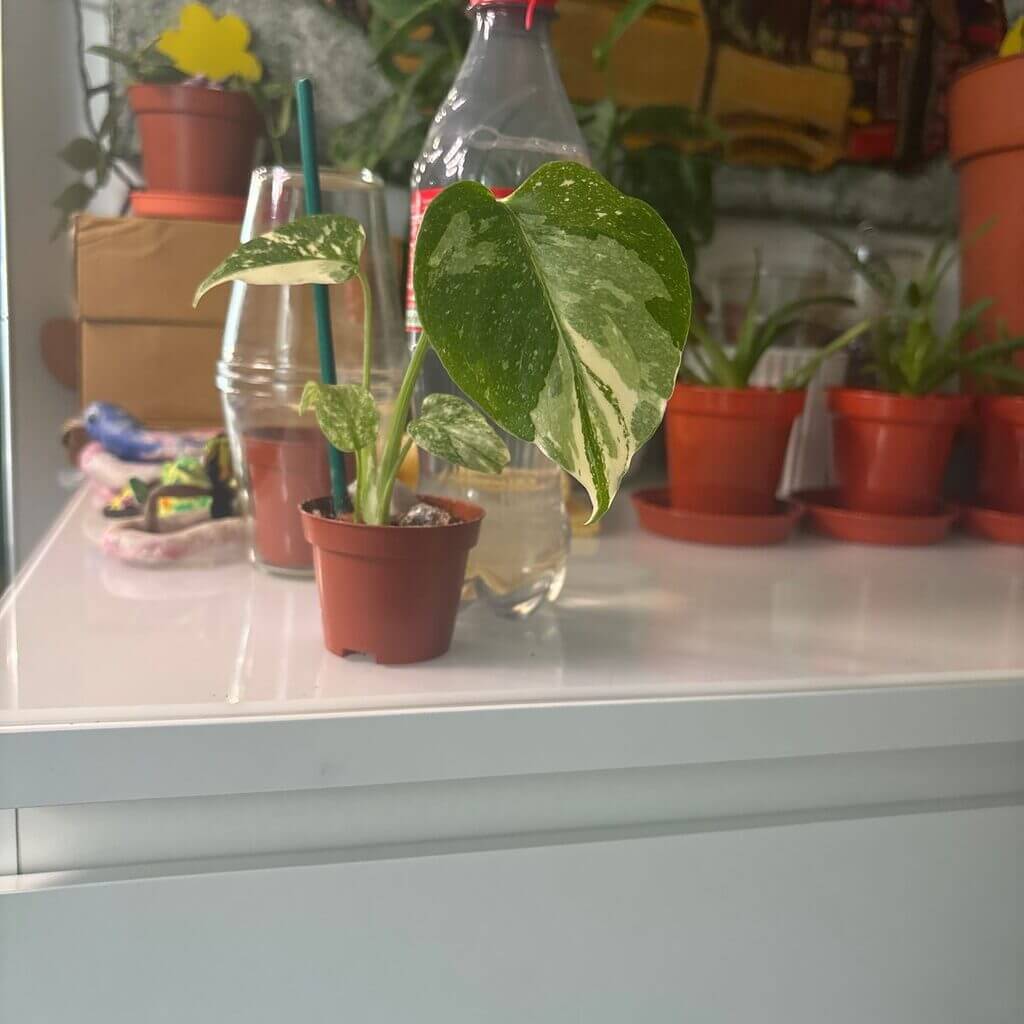
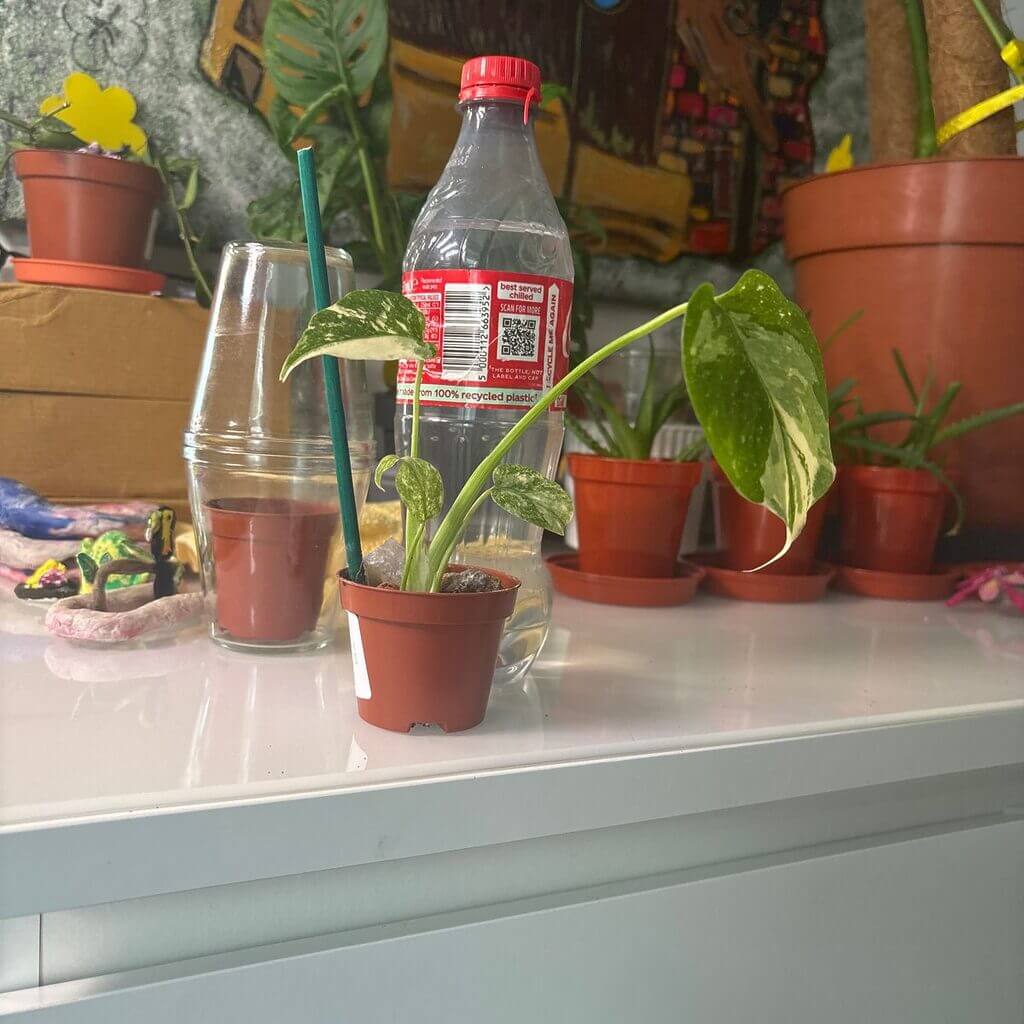
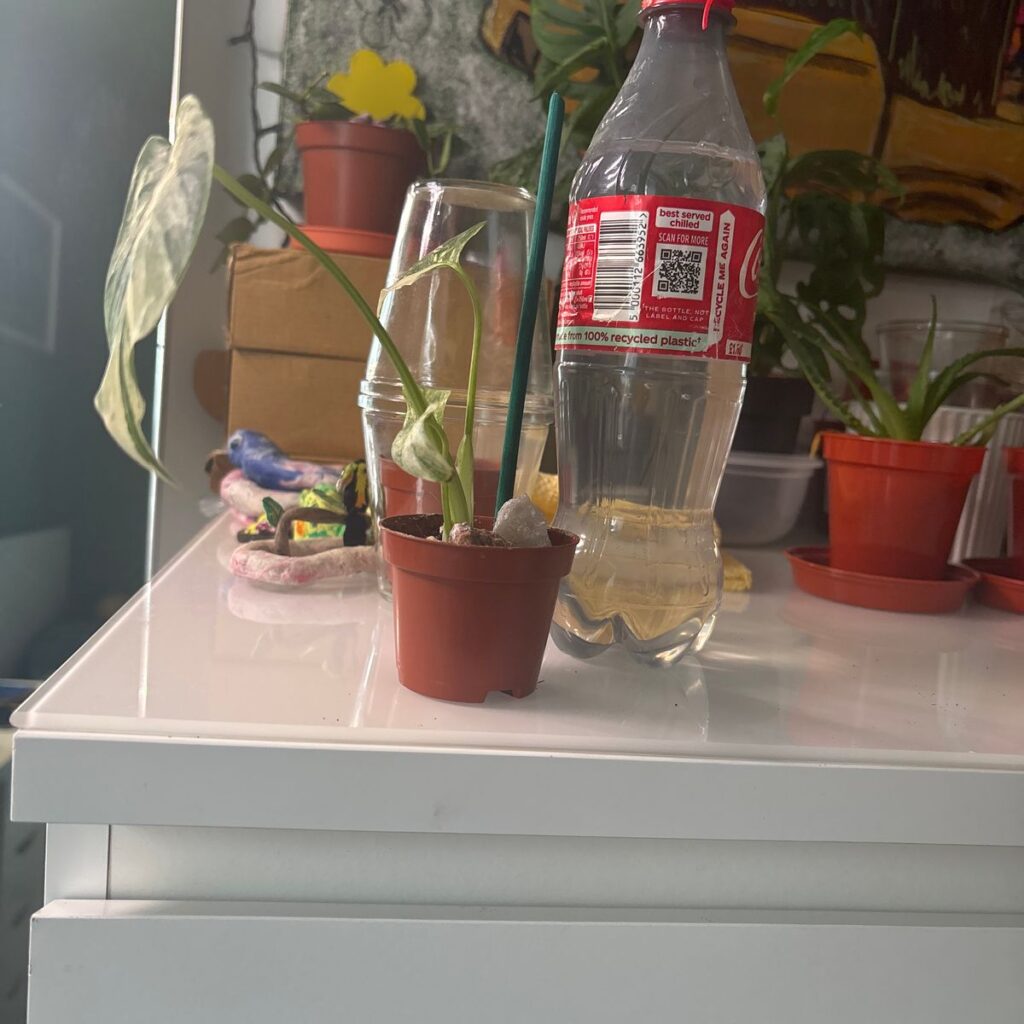
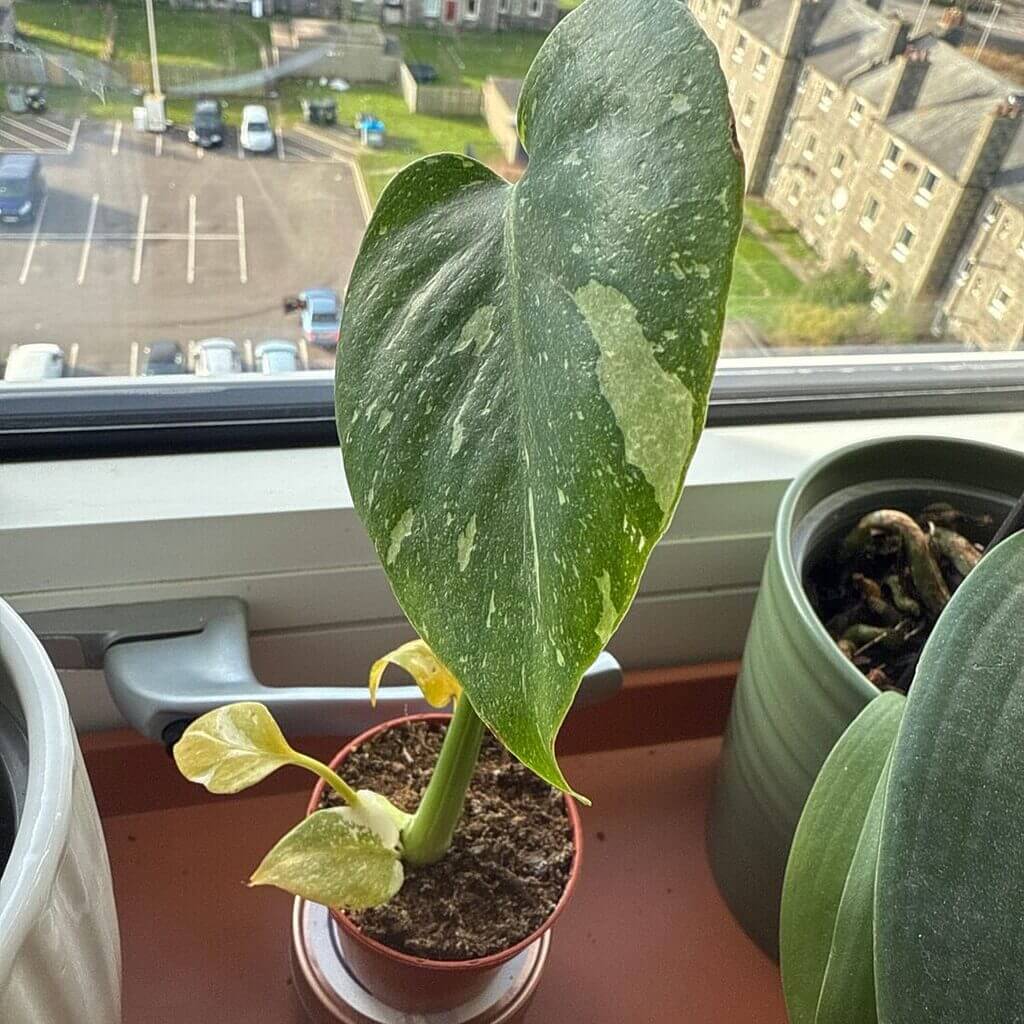
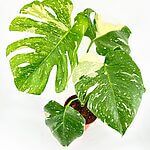 Monstera Thai Constellation
Monstera Thai Constellation
We’re a small family business with a big love for plants.
From our base in Aberdeen, we pack every order with care and love. Our small size means we can be flexible with special requests, and we’re always happy to help. We reuse packaging, craft our own eco-friendly products, and offer friendly advice whenever you need it.








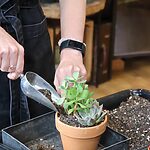

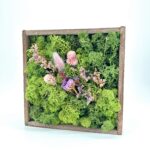

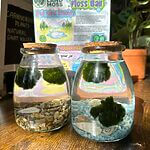
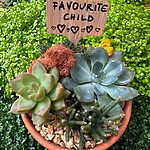
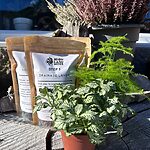


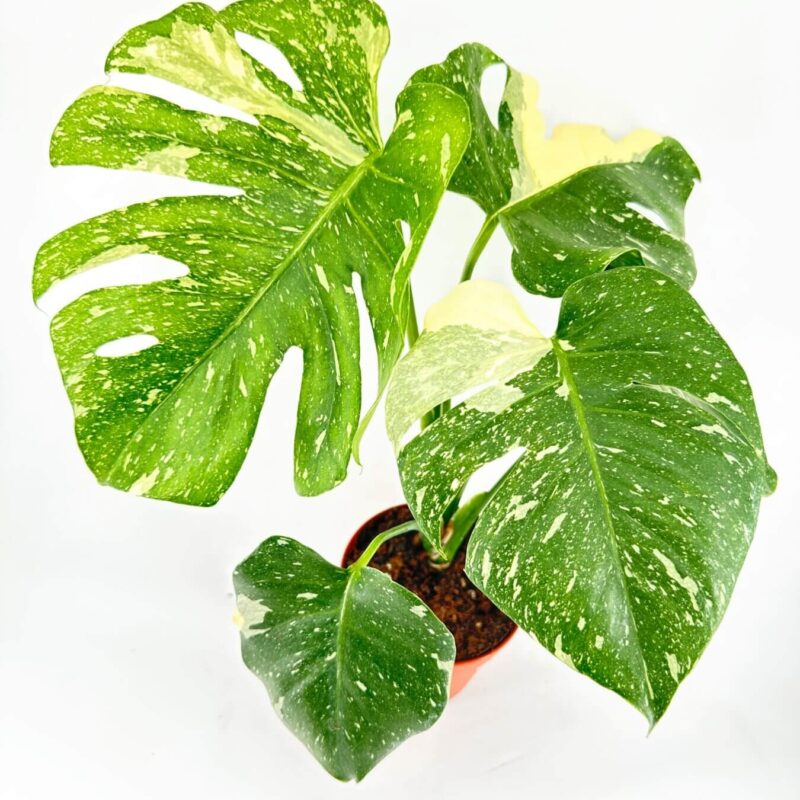
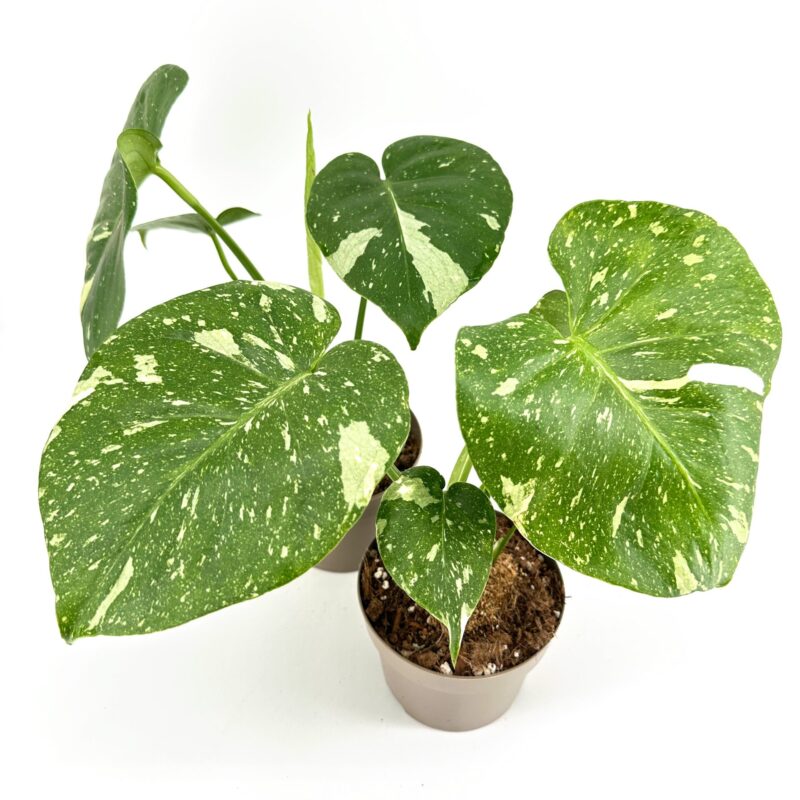
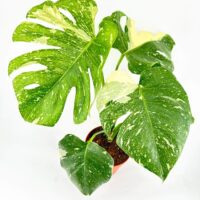
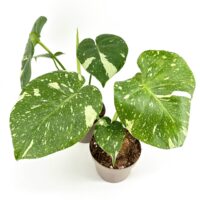
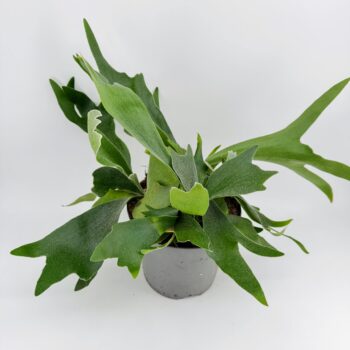
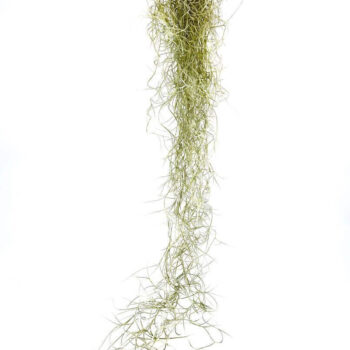
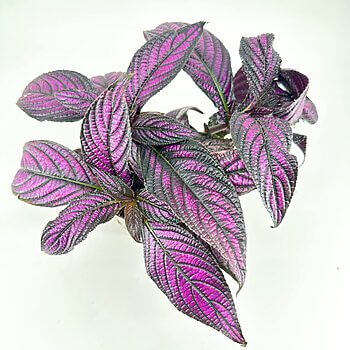
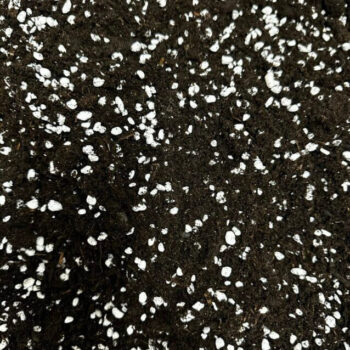

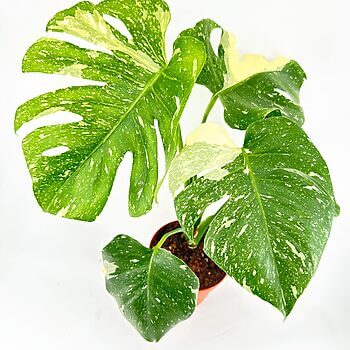
Hopping it with thrive
Cute. Photos included for reference of how small I picked my compared to a Coca Cola bottle.
Arrived beautifully packed and in perfect condition. The plant looks really healthy and I’m so excited to see it grow